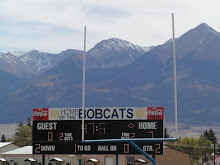
There seems to be a rule of thumb among many Republicans lately that has caused me large amounts of confusion. Apparently, cutting taxes will increase government revenue when the economy improves due to the tax cuts. Republicans hold Ronald Regan up as a shining example of the success tax cuts have as economic stimulus. However, this simple explanation of success falls short of historical accuracy.
This belief of tax cuts to encourage economic growth is known as “supply side economics”. The economic theory postulates an increase of government revenue at a lower tax percentage due to a growing economy. This theory is dependent on economic expansion resulting from new tax cuts yet if an economic contraction occurs, government deficits increase drastically. This risky maneuver has backfired every time since 1980 but the belief tax cuts help the economy stems from false concepts of what has caused economic recoveries in the past thirty years.
Ronald Regan implemented supply side economics during his first year in office by cutting $39 billion from the federal budget; created a 25% tax cut over three years, and faster write-offs for capital investments. The gamble was that such a huge tax cut would shock the economy from its stagnant state and the result would be a growing economy which would cover the cost of the government tax cuts. Instead of economic expansion the country fell into a recession and a mounting federal deficit forced Regan to increase budget cuts and increase taxes.
During the recession in 1982 the Federal Reserve Chairmen Paul Volker had worked to decrease the double digit inflation and lower the double digit interest rates that were crippling the economy. When Volker’s many painful reforms started to lower inflation and interest rates the economy boomed while Regan was increasing taxes and cutting spending to handle the federal deficit. The economy flourished during Regan’s Presidency but the federal debt was growing at a frightening pace. The promised increased government revenue was not materializing.
Republicans claimed that supply side economics had created the economic boom of the 1980’s although lower inflation and lower interest rates were the real drivers of the economic expansion. This Republican propaganda spin allowed George H.W Bush to win the election in 1988, fortunately, Bush did not hold to the “Voodoo” economic policies of Regan.
President Bush felt that America could not grow and prosper with the growing federal debt. Bush pushed for more federal spending cuts but the Republican congress also wanted to cut taxes again which would have increased the deficit in 1989 to $500 billion. Instead of increasing the debt levels, Bush signed a Democratic bill that raised taxes to battle the deficit left by Regan. The Republican voters felt betrayed by Bush who had promised “no new taxes.” Bush’s political career was killed when he signed the bill. Although Bush’s broken promise cost the Republican Party the election in 1992, the tax increases halted the budget deficit and helped Bill Clinton and the conservative congress to create a large federal surplus in the 1990’s. The 1990’s saw a long economic expansion with no tax cuts, instead, low interest rates and low inflation once again spurred economic growth.
This decade of prosperity came to an end when George W. Bush won the election in 1999 and returned the political agenda to supply side economics. In his first year Bush passed a slew of new tax cuts and championed many new financial reforms focused on easing the accounting standards of large corporations. At the same time he increased welfare programs with no balancing tax increase to cover the spending. The country entered the Tec and Telecom recession which reversed the federal surplus in two years. By 2005 the country was engaged in two military conflicts while more tax cuts took place.
During this period of increasing debt levels the US economy recovered from the 2001 recession but this success was not due to the many Bush tax cuts. The new fed chairman Alan Greenspan kept interest rates artificially low to stimulate economic recovery and this was mixed with Bush’s increased mortgage spending through Fannie and Freddie Mac. The mixture led to an economic recovery which eventually caused the housing bubble burst in October of 2008. Faced with economic depression due to his tax cuts and increased mortgage borrowing, Bush passed the $700 billion TARP bill to rescue the nation’s credit markets further increasing the national debt.
By looking at the historical timeline since 1980 it seems that cutting taxes did little to stimulate the economy and increased the federal debt levels astronomically. In addition, entitlement programs such as social security, welfare, and Medicare were expanded with no tax increases to balance the new entitlement spending. Every major tax cut since 1980 happened before or during an economic contraction. Each recovery was due to a combination of lower inflation or low interest rates and not from large tax cuts.
For me to say that lower tax rates are bad for the economy would be a false statement. Lower tax rates over long time periods encourage less government spending and increases a strong and vibrant economy. That said, large tax cuts in short periods of time while increasing spending has led the large debt America has created.
America has to decide if we will pay off our debt and cut spending or cut taxes in political retaliation to a liberal president which will place a tombstone over our fiscal grave. When will America put aside our political differences and realize we have a responsibility right now to pay for our borrowing? I guarantee if we cut taxes more our nation will be forced to default before end of the decade. The discussion should not be about taxes but about entitlement spending that is bankrupting this nation. I personally choose responsible taxes and spending cuts rather than a second great depression.

Some Sources:
http://www.reagan.utexas.edu/archives/reference/reference.html
http://www.reagan.utexas.edu/archives/reference/pressketch.html
http://www.investopedia.com/terms/v/voodooeconomics.asp
http://yellowroad.wallstreetexaminer.com/blogs/files/2008/06/inflation.gif
.jpg)












